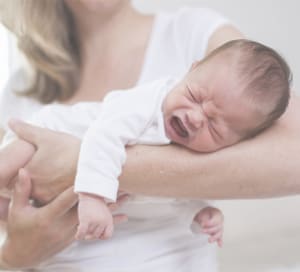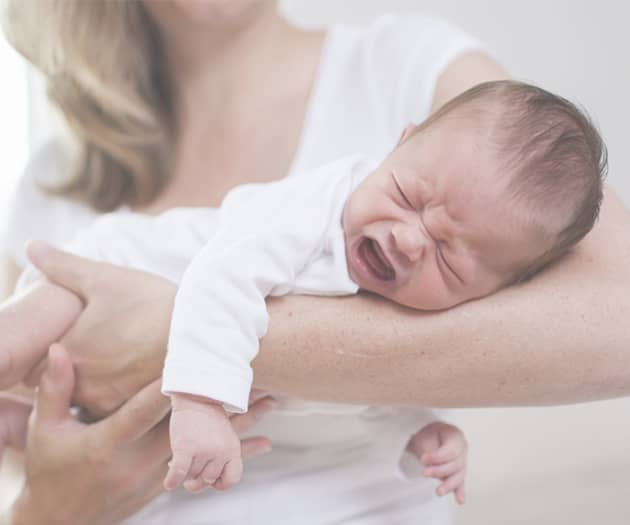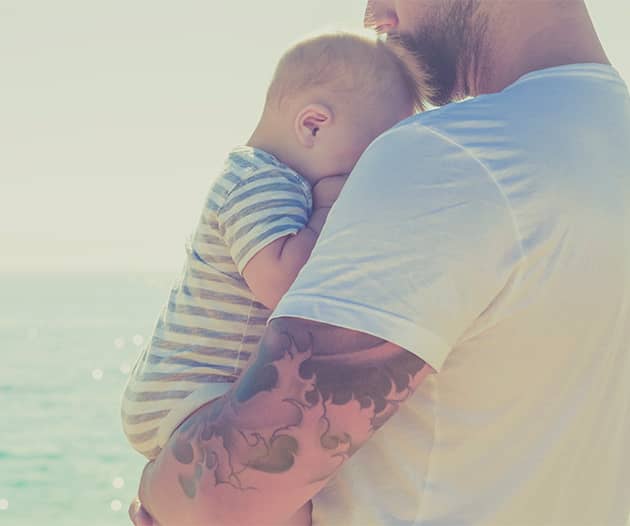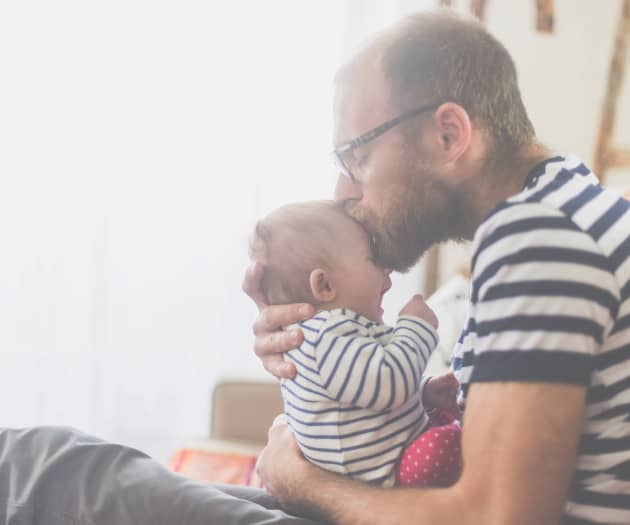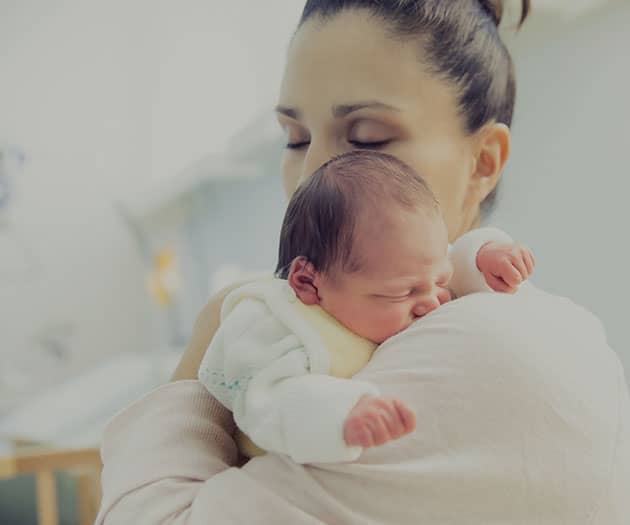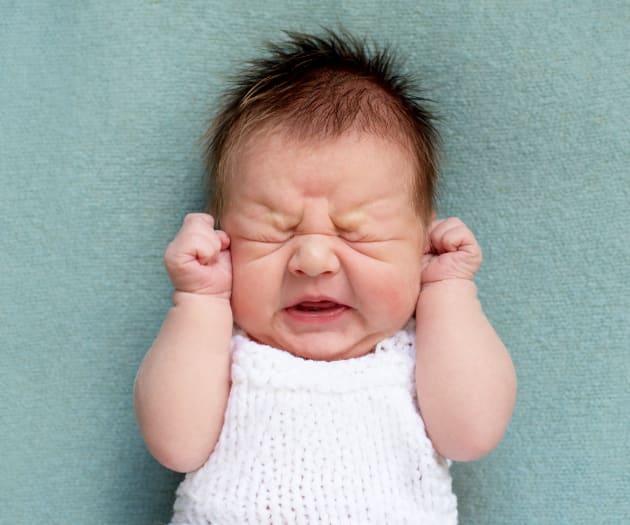Introduction to baby diarrhoea
Once you become a parent, your newborn’s poo will occupy a lot of your time! Whether it's cleaning your baby’s back after explosive baby diarrhoea, or frantically searching the internet to check whether green poo is normal, it can feel like a real minefield. Fortunately, you’re not alone, and help is out there. This article will explore what baby poo should look like, the symptoms and causes of baby diarrhoea, how it’s treated and when to seek professional help.
What should baby poo look like?
Your baby’s first poo will be made up of a sticky greenish black substance called meconium1. After that, your baby’s poo will start to change colour as they grow, depending on whether your baby is bottle or formula fed.
Breastfed baby poo is usually soft, runny, and yellow in colour1 – like English mustard. Whereas formula fed baby poo tends to be firmer and pale brown or yellow green in colour1. Just like us, babies poo is going to change in frequency, smell, colour, and consistency depending on what they eat and drink and how old they are. For more details, read our article all about baby poo.
What are the symptoms of diarrhoea?
It’s normal for your baby to have the occasional runny poo. This is because your baby’s digestive system is developing and adapting after they’re born. Baby poo tends to be runny looking, especially if your baby is breastfed, so it can be difficult to spot the signs of baby diarrhoea. As you get to know your baby, you’ll soon find out what’s normal for them. Here are some symptoms of baby diarrhoea to look out for1:
-
Your baby’s poo is more watery than usual (often leaking through the nappy)
-
Your baby is pooing more frequently than usual
-
Your baby’s poo is more foul smelling than normal
What causes diarrhoea in babies?
The most common cause of baby diarrhoea is a stomach bug virus such as norovirus2. If your baby has a stomach bug, they’ll usually improve within five to seven days2. Some babies may experience diarrhoea after receiving an immunisation or a dose of antibiotics3,4. The symptoms are usually mild and will often resolve on their own within a few days3,4.
Could diarrhoea be a sign of lactose intolerance?
If your baby’s diarrhoea is persistent and they have other symptoms, it could be a sign that they have another condition such as cow’s milk protein allergy or lactose intolerance5,6. Here are some symptoms to look out for:
-
Vomiting (reflux) after feeding
-
Skin changes (e.g., a rash or eczema)
-
Mucus (a white, jelly-like substance) in your baby’s poo
-
Excess wind
-
Discomfort and crying
-
Abdominal pain and bloating
For further information, read our article on the signs and symptoms of cow's milk protein allergy and lactose intolerance. If you’re concerned that your baby’s diarrhoea could be a sign of another condition, talk to your GP who might refer you to a dietitian for specialist advice.
How to treat diarrhoea?
Whilst there’s no quick-fix solution for baby diarrhoea, the good news is that in most cases, it will resolve on its own. If your baby has diarrhoea, you can continue to look after them and provide diarrhoea treatment at home2. Here are some things you can try to help your baby to cope with the symptoms of diarrhoea and get them back to their usual happy self:
-
Help them to stay hydrated: It’s important that your baby continues to drink to avoid dehydration2,7. Continue to feed your baby with their usual milk, whether that’s breastfeeding or formula feeding. If breastfeeding, offer more feeds than usual. You can offer formula fed babies small sips of cool, boiled water in between feeds.
-
Do not offer your baby fruit juice or carbonated drinks. These aren’t suitable fluids for young babies and can worsen diarrhoea, which may lead to dehydration7.
-
It’s normal for your baby to have a reduced appetite during an episode of diarrhoea. Try not to worry too much – your baby will make up for it when they’re feeling better again. For breastfed or formula fed babies, you might find that your baby prefers smaller, more regular feeds2. If your baby has moved onto solids, offer their favourite foods, or try easy to digest foods such as porridge or yoghurt. There aren’t any specific foods that should be avoided2.
-
If your baby is in discomfort, you can give paracetamol in line with the manufacturer's advice2. Anti-diarrhoea medicines shouldn’t be used in babies and infants unless directed by your GP2,7.
-
Change your baby’s nappy on a regular basis and use a barrier cream each time to protect their delicate skin. If it gets sore, ask your pharmacist for a nappy rash cream to help calm things.
How to tell if my baby is dehydrated?
If your baby is losing a lot of fluids through diarrhoea or vomiting, they’re at risk of becoming dehydrated. Your GP may advise the use of an appropriate oral rehydration solution. Things to look out for include:
-
Fewer wet nappies than usual7
-
Dark coloured and/or smelly urine8
-
Sleeping more than usual8
-
Sunken soft spot on the top of their head8
-
Pale or mottled skin7
-
Cold hand and feet7
When to call your doctor or seek medical advice?
Young babies can quickly become dehydrated. If you’re concerned or unsure, speak to a healthcare professional such as your GP, health visitor or public health nurse.
It’s recommended that you seek urgent advice from your doctor if you notice any of the following2,7:
-
Your baby stops feeding
-
Your baby is showing signs of dehydration
-
Your baby has diarrhoea and vomiting
-
There is blood or mucus in your baby’s diarrhoea.
-
Your baby has had diarrhoea for longer than seven days or vomiting for longer than two days.
-
Your baby has a fever
-
Your baby has neck stiffness
-
Your baby has severe abdominal pain or green vomit.
SMA Careline®
Need expert advice or support 24/7?
We have a dedicated team of expert parents with first-hand experience in everything related to babies. They also have access to expert healthcare professionals such as registered dietitians and nutritionists to answer your questions.
Get in touchNext steps
Baby diarrhoea can be stressful for parents;
not to mention the constant nappy changes and the ever-expanding pile of washing. Ask family and friends to help with other household tasks to make your life a little easier until your baby has recovered. It’s important to remember that baby diarrhoea is relatively common and usually resolves with time. If your baby’s poo doesn’t improve, or they develop any other symptoms, contact your health visitor, GP, or public health nurse for further advice.
Feeding issues symptom checker
Experiencing feeding issues with your newborn?
Get help narrowing down the cause with our symptom checker.







